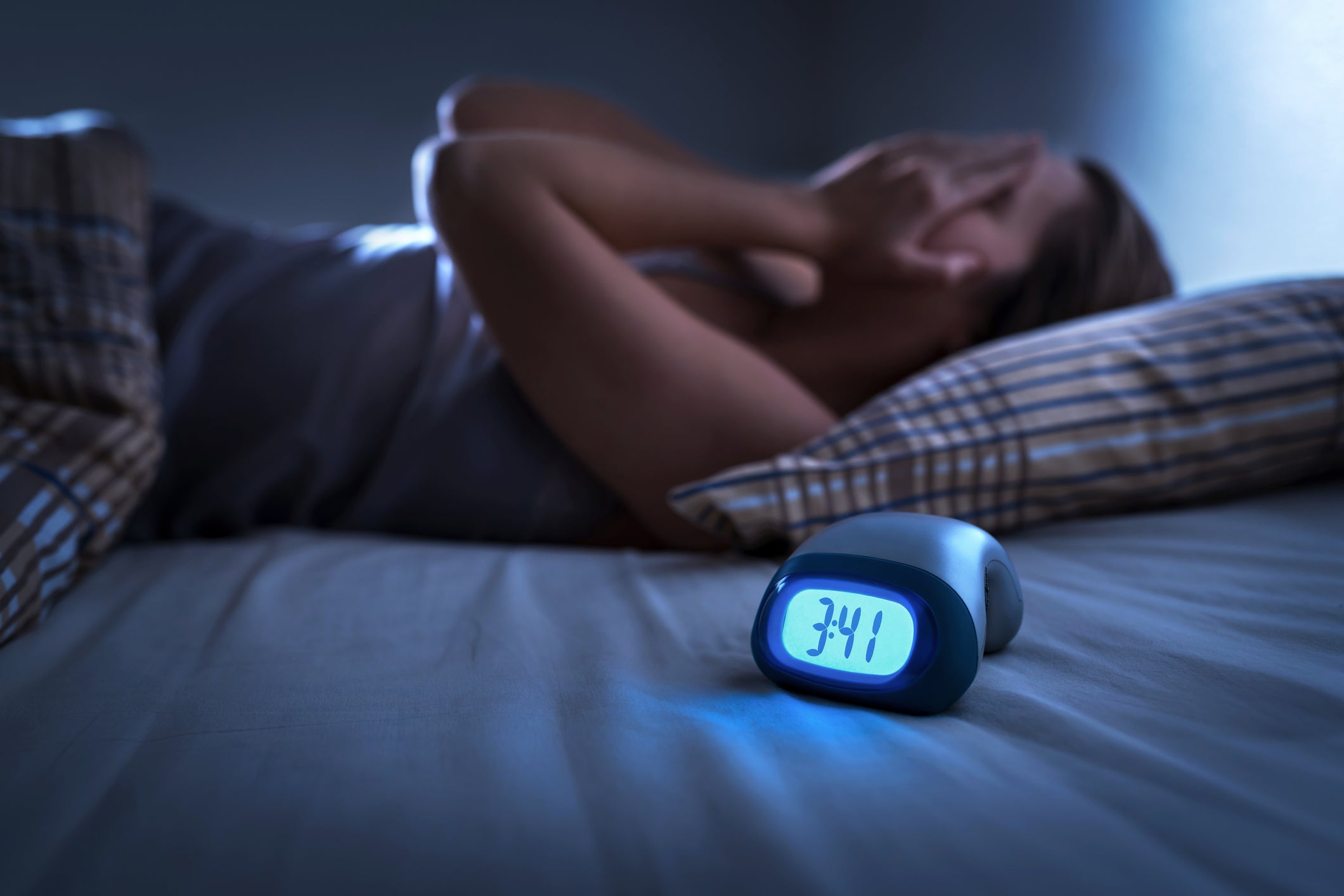Why are more women than men struggling with sleep disorders and work stress?
Domestic responsibilities and other social aspects are thought to be a factor, writes Olivia Petter


The last 18 months have hardly been characterised by relaxation and restfulness for anyone, but a new study has found the number of women experiencing work stress, fatigue and sleep disorders is increasing more compared to men. Such issues are typically viewed as non-traditional risk factors for heart attack and stroke, which has concerned health experts.
The new research was compiled using data from 22,000 men and women in the Swiss Health Survey from 2007, 2012 and 2017. It found levels of work stress had risen in both men and women over the years, with 59 per cent reporting stress in 2012 compared to 66 per cent in 2017.
Meanwhile, those reporting feelings of fatigue rose by 33 per cent in women in the same time period, while 26 per cent of men said the same. As for sleep, the number of severe sleep disorders rose sharply in women by 8 per cent, compared to 5 per cent for men. But why is this happening?
The study’s authors – Dr Martin Hansel, neurologist at the University Hospital Zurich and Dr Susanne Wegener, professor of neurology at the University of Zurich – said the findings coincided with the increase in the number of women working full time, which rose from 38 per cent in 2007 to 44 per cent in 2017.
“Our study found men were more likely to smoke and be obese than women, but females reported a bigger increase in the non-traditional risk factors for heart attacks and strokes, such as work stress, sleep disorders, and feeling tired and fatigued,” they noted.
“This increase coincides with the number of women working full time.”
As well as a greater number of women in full-time work, the study authors noted how this responsibility is balanced with others like domestic chores or raising children.
“Juggling work and domestic responsibilities or other sociocultural aspects may be a factor, as well as specific health demands of women that may not be accounted for in our daily busy lives.”
The authors went on to say that both sexes had experienced an increase in non-traditional risk factors for heart disease and stroke, but these were “more pronounced” in women.
“These results underscore the fact that sex differences exist for non-traditional CVD (cardiovascular disease) risk factors with an alarming trend towards a particular increase in women,” they concluded.
Dr Wegener, who presented the research at the virtual European Stroke Organisation Conference, added that the findings challenge previous assumptions around cardiovascular disease.
“Traditionally men have been perceived to be more affected by heart attacks and strokes than women, but in some countries, women have overtaken men,” she said. “There is a gender gap and further research is needed to find out why.”
It’s not the first time research has found that workplace stress is likely to hit women harder than men. In 2014, a study found that female employees are 1.5 times more likely to experience feelings of burnout than men.
This was followed by a survey of 13,000 people in 2019 conducted by global health service company Cigna, which found that 79 per cent of women report workplace stress compared with 66 per cent of men.
This type of position, which men are less likely to hold, causes women to burn out
The top three stressors for women were found to be heavy workloads (17 per cent), personal health (13 per cent) and financial concerns (13 per cent).
Further research conducted by Montreal University found that women were more likely to suffer exhaustion as a result from work than men.
This was due to the women surveyed saying they are less likely to be given positions of power, which caused them to become overwhelmed with frustration.
“Our results show there are differences between men and women because, from the outset, employees are subject to different working conditions depending on their gender,” said study author and professor of population health, Dr Nancy Beauregard.
“Indeed, female employees often burn out at a faster rate simply because of the nature of their work.
“Many women have positions that offer little latitude in decision-making, meaning that their work only provides them with a low level of authority and decision-making power and makes little use of their skills.
“This type of position, which men are less likely to hold, causes women to burn out.”
Join our commenting forum
Join thought-provoking conversations, follow other Independent readers and see their replies
Comments
Bookmark popover
Removed from bookmarks